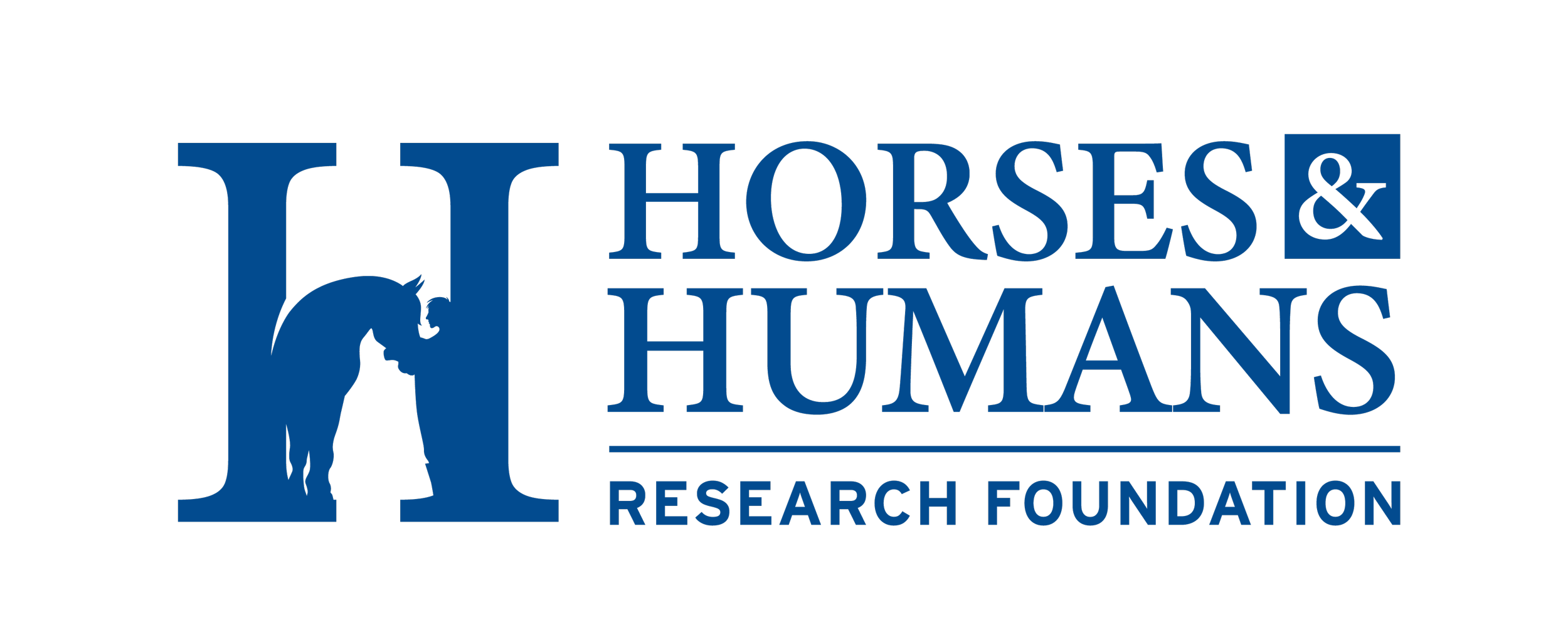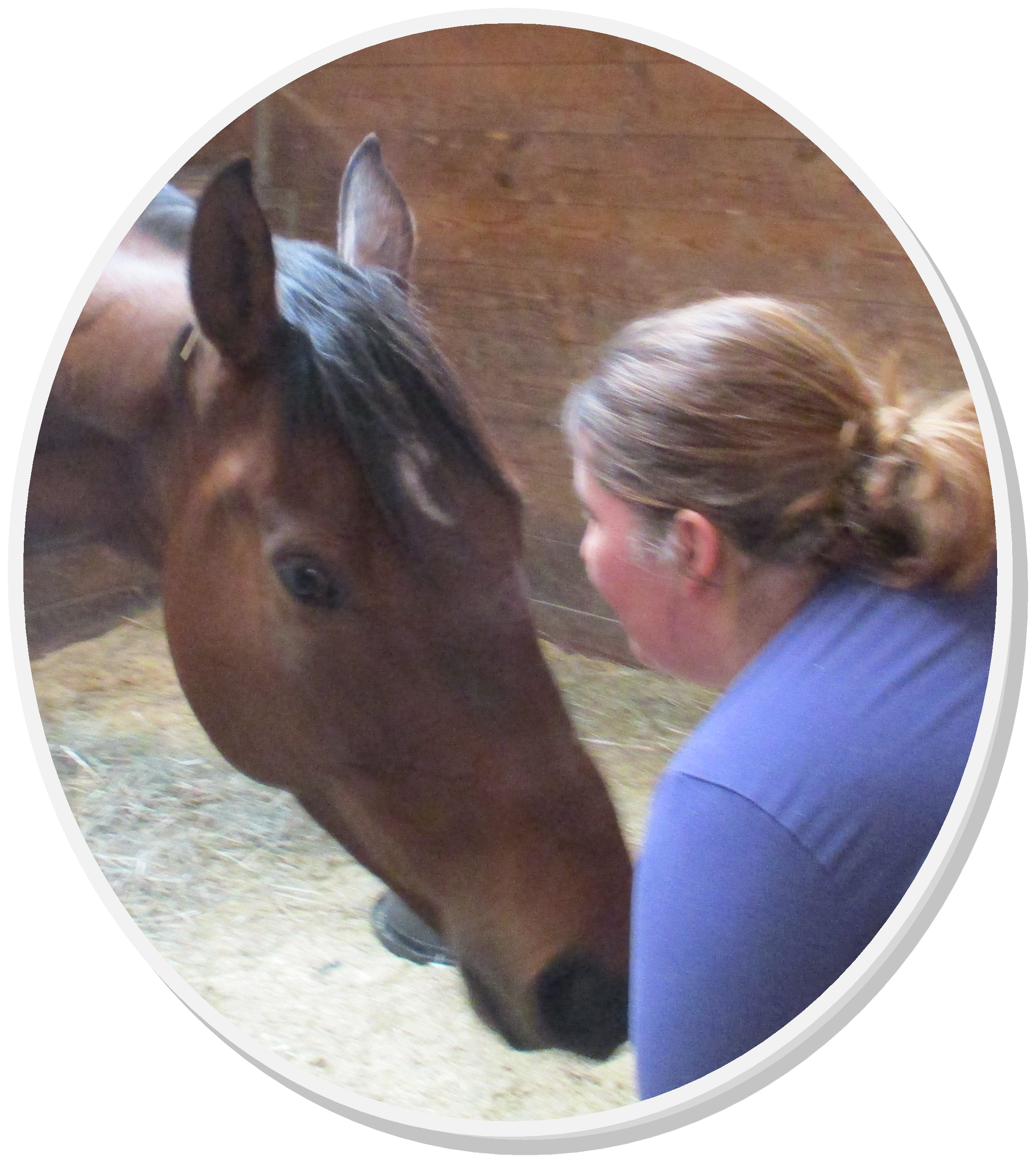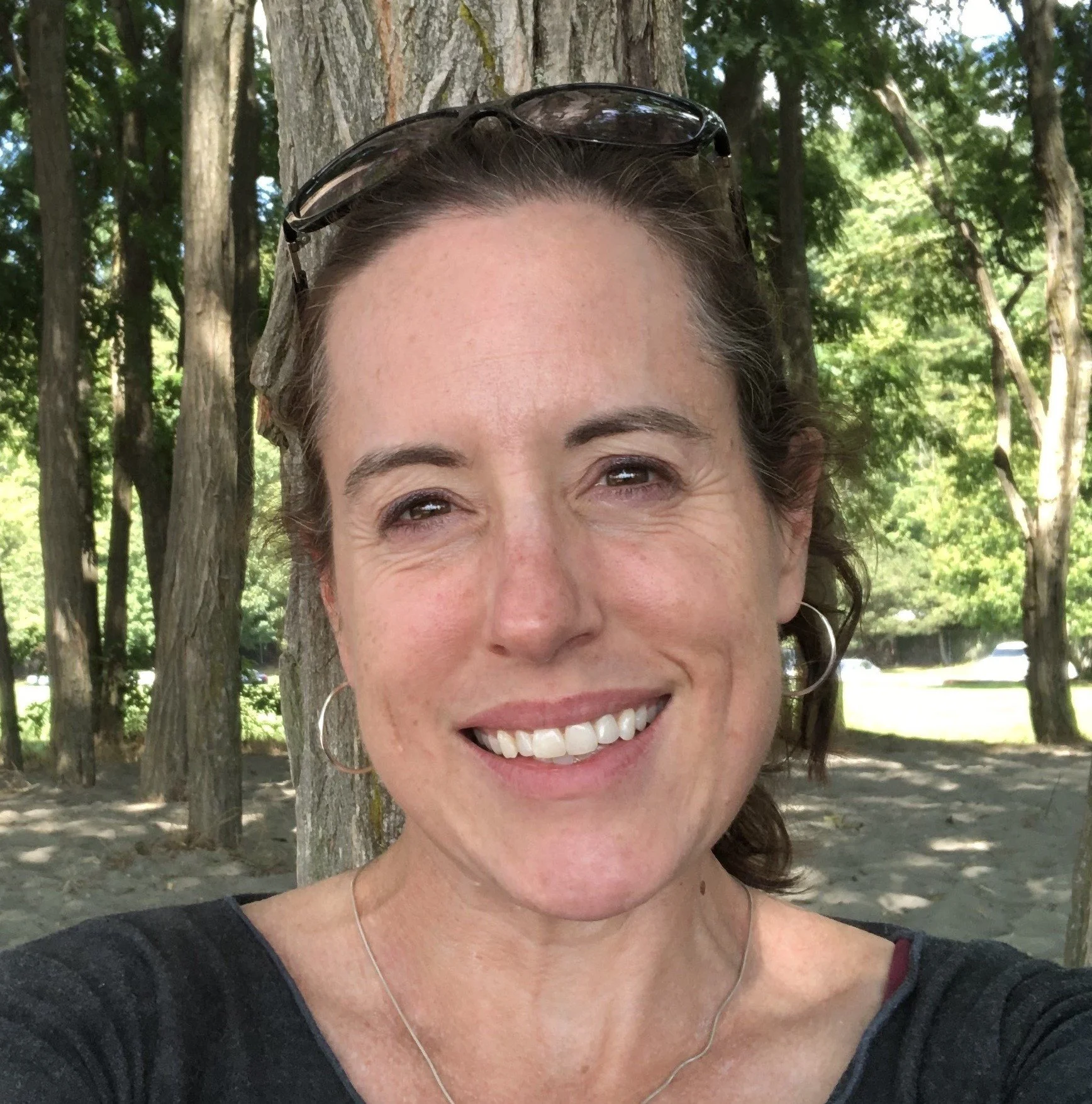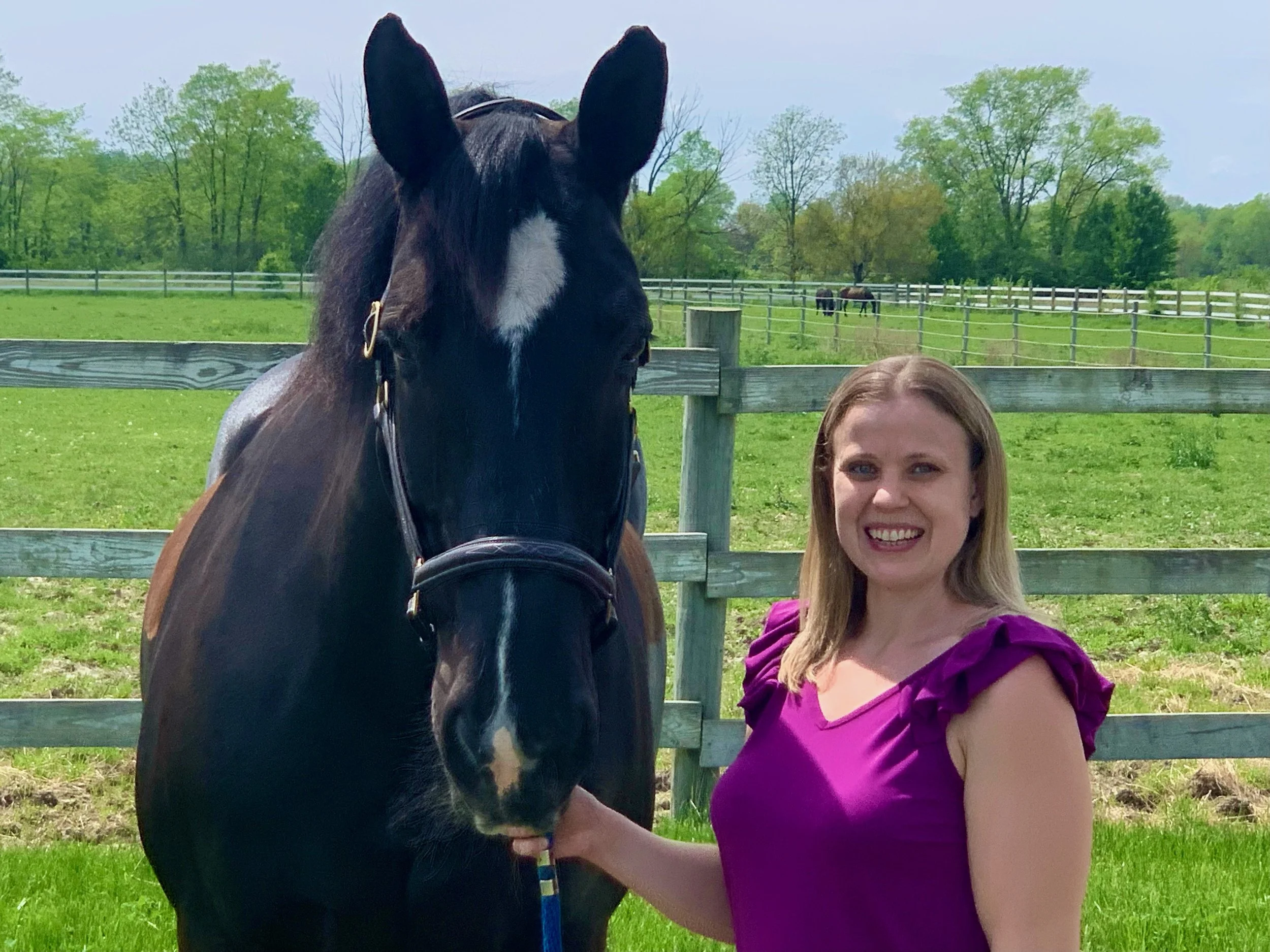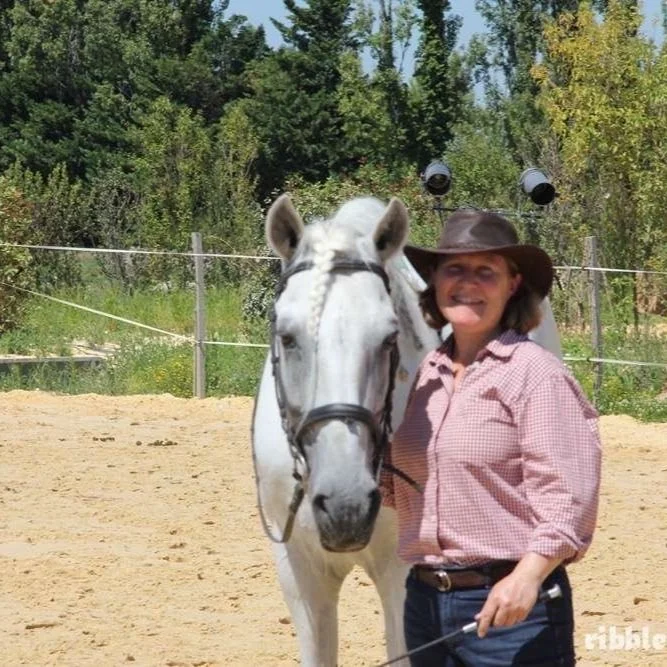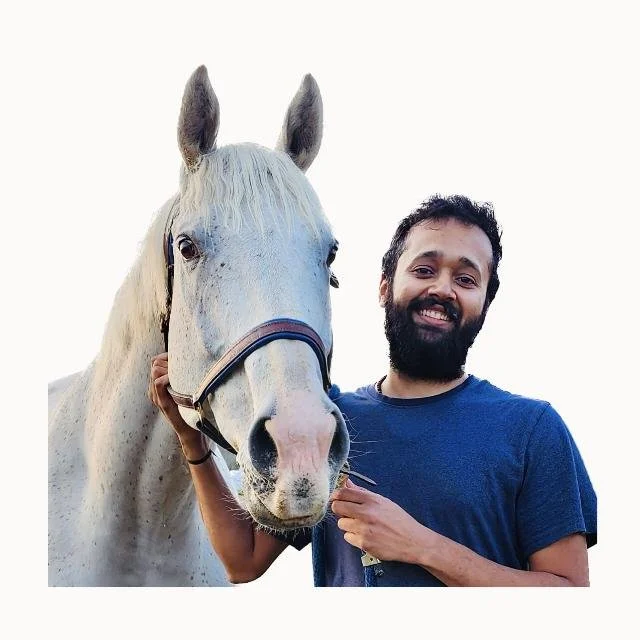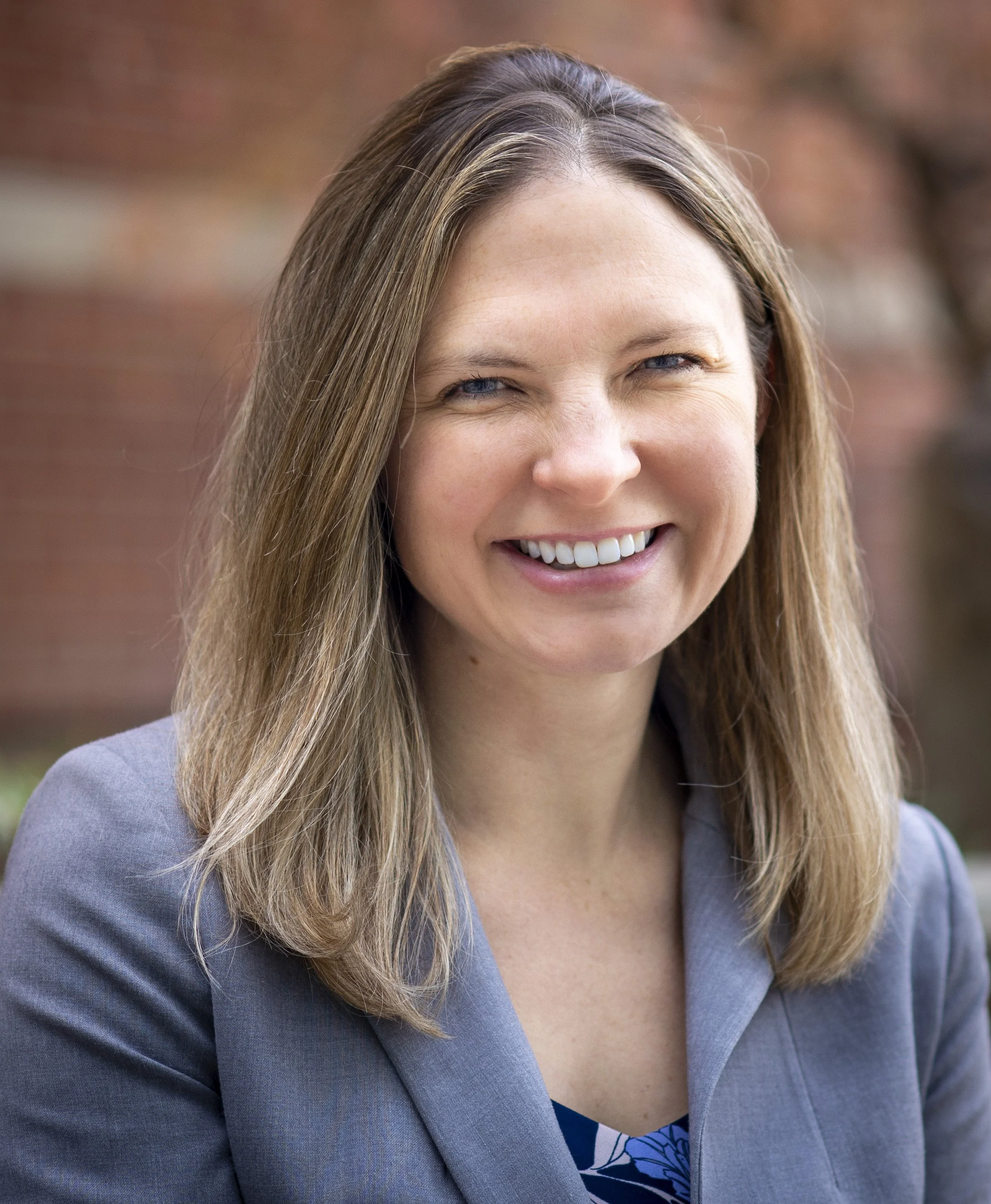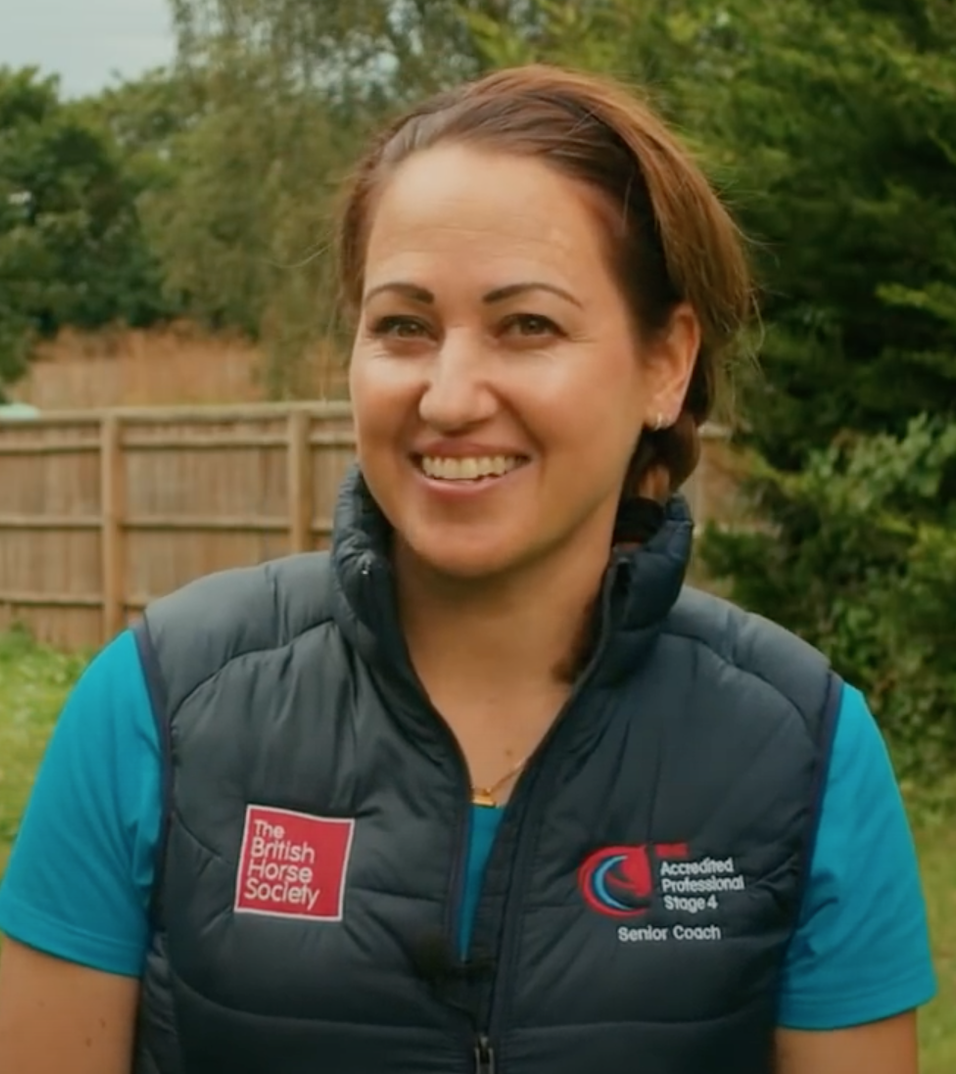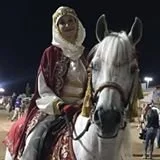ADVISORS
Scientific Advisory Council
Horses and Humans Research Foundation's Scientific Advisory Council is a group of leading researchers and experts from equine-assisted activities and related fields. Members respond and contribute to a variety of foundation research related needs including advising and assisting the staff and board in scientific strategic decision making, educational outreach and in areas related to grant applications and assessment. Their contributions in all areas help sustain the most relevant and highest quality research possible.
Clare Thomas-Pino - Chair
Dr. Clare Thomas-Pino started her academic career in the UK, with an undergraduate degree (BSc (Hons) in Psychology with Animal Behaviour, with master’s study and research in Developmental, Social and Health Psychology. She returned to the US to work on an Interdisciplinary PhD, with a foundation in Counselor Education, and looked at nature based and animal assisted activities and therapies and anthrozoology (her thesis looked at equine human interactions). She has been working in nature based and animal-assisted activities and therapies for the last 18 years, from the educational, mental health, and research perspectives, but have been interested in them since she was in her teens (when they were not widely recognized).
Since its inception, she has been a grant reviewer and member of the Scientific Advisory Committee for HHRF a funding body that provides grants for Equine Assisted Activities and Therapies. She was on the Board of Directors for EFMHA (the mental health and education wing of NARHA- now PATH International), and headed the research committees, completing 2 annotated bibliographies on EAAT (Equine Assisted Activities and Therapies).
Clare has worked with animals, particularly horses, for most of her life, developing and teaching courses at UMaine (Orono) for the past 15 years in the Animal Science and Counselor Education programs. She has also taught in Rehabilitation Services at UMF courses such as Introduction to Disability, Counseling and the Helping Relationship, and Animal Assisted Therapies. Currently, She is teaching at Husson University in the Psychology and Counselor Education programs, with undergraduate courses in Mind-Body Connection, Lifespan Developmental Psychology, and Ethics and Professionalism as well as graduate courses in Animal Assisted Interventions, and Green Care. She has also developed and am teaching a graduate course in Equine Nutrition for Unity College’s distance education program. She has completed extensive research on a small scale with my students on several topics related to Animal Behavior, Anthrozoology and Animal Assisted Activities and Therapies.
In addition to the above, Clare also developed and teaches graduate courses for USM online in Green Care, Anthrozoology/Animal Assisted Interventions, and Equine Assisted Interventions. For the past couple of decades, she has run diversified farms farm with many animals of different species.
Currently, Clare moved back to the UK to take up a position as a Lecturer in Human-Animal Interactions at Hartpury University, where she’ll be able to focus further on the impacts of HAI on both humans and most importantly to her, the animals who we spend our time and presence with. She is passionate about teaching & learning, & her motto in life- is “Knowledge is only useful if it is shared.”
M. Elizabeth (Betsy) Kemeny, PhD, CTRS, Grove City, PA - Co-Chair
M. Elizabeth (Betsy) Kemeny, PhD, CTRS is currently an Associate Professor at Slippery Rock University who focuses her research on equine-assisted interventions for both adolescents on the autism spectrum and older adults. She is a member of the International Society for Autism Research, a certified Heart Math Intervention Specialist, a certified Heart Math coach, and a credentialed Professional Gerontologist. Her presentations and publications focus on youth with autism, staff development supporting the care needs of older adults, and client assessment. More recently, she has also been working with researchers from Clemson and Temple Universities on the ATRA Delphi/Competency Study to better understand the competencies needed in the field of Recreational Therapy. She studied Sociology at Wake Forest University, finished a Masters in Recreation Administration with a concentration in Therapeutic Recreation at University of North Caroling at Chapel Hill, and a PhD in Administration and Leadership of Nonprofit and Public Sectors at Indiana University of Pennsylvania. She currently facilitates a number of service-learning programs for youth on the autism spectrum and veterans with disabilities. During her 25 years in the field, prior to becoming a faculty member, her work experience focused on dementia care and included skilled nursing, adult day care, hospice, assisted living and outpatient rehabilitation.
“I am convinced that rigorous research is the best way to promote knowledge of horse-human interactions benefits to health outcomes.”
Betsy Kemeny
Emily Kieson PhD
Emily Kieson holds a PhD in Comparative Psychology, a MS in Psychology, a graduate degree in Equine Science and numerous certifications in equine-assisted services. In addition to developing and teaching courses at a number of universities, she also serves as executive director of Equine International, a US-based nonprofit dedicated to conducting research in equine behavior, welfare and well-being, and equine-human interactions and creating educational programs based on the findings. Equine International also collaborates with organizations to develop science-based approaches to equine-assisted services in a number of areas.
"HHRF has and continues to provide incredible opportunities for both research and education in fields that are largely underserved in these ways. This foundation is an asset to the future of equine welfare and equine-assisted practices. "
Heather Ajzenman OTD,OTR/L, Manchester, NH
Heather Ajzenman
Heather Ajzenman, OTD, OTR/L, HPCS is the owner of Play and Prosper Therapy, PLLC which offers OT utilizing hippotherapy, nature, and neurodiversity affirming approaches. Heather and her consulting OTs contract with 8 different farm sites to provide services throughout the state of New Hampshire. She is a hippotherapy clinical specialist and is a DIR Floortime Advanced provider through the Interdisciplinary Council on Development and Learning (ICDL). She previously served on the AHA board and is a scientific advisor for the Horse and Human Research Foundation. She published a study on the impact of OT incorporating hippotherapy in 2013 in the American Journal of Occupational Therapy. She is an avid dressage rider and loves spending time outdoors and sharing her love of horses with her children and husband.
“As an occupational therapist using hippotherapy and other equine assisted therapies for my clients, it is important to be part of such a foundation as HHRF to further support research on EAA/T. Not only will such research educate the public but it will provide further evidence to third party payers on the benefits of EAA/T and potentially impact policies at a national level.”
Dr. Laura Bassette
Dr. Laura Bassette is an Associate Professor Applied Behavior Analysis/Autism at Ball State University and a doctoral level Board Certified Behavior Analyst. Prior to Ball State, Dr. Bassette earned her Ph.D. in Special Education from Purdue University and completed a post-doctoral fellowship with an emphasis in severe disabilities at the University of Illinois, Champaign-Urbana. She developed her passion for exploring the connection between horses and people based on personal experiences she had with horses growing. During her master’s program at Purdue University, she earned her PATH (then NARHA) Registered Riding Instructor in 2006. Her master’s thesis compared using live horses and horse materials to teach an equine-based mathematics curriculum to students with moderate disabilities. These experiences working with people with disabilities in therapeutic riding settings are what ultimately led her to the field of Special Education. During her doctoral program, she conducted another preliminary study examining the impact of a therapeutic riding program on conversational skills in people with disabilities. Dr. Bassette continues to maintain her PATH Certified Therapeutic Riding Instructor certification and engage in research that includes horseback activities for children with disabilities. Her current primary line of research focuses on using technology to deliver physical activity interventions to people with developmental disabilities and autism in inclusive community fitness settings. In her free time she enjoys riding her Percheron horse and competes him in lower level dressage.
“Through fulfilling HHRF’s mission, the field of Equine Assisted Services will be able to conduct high quality research which enhances the quality of life for people with disabilities, as well as, the dedicated equines who bring such joy to program participants.”
Denise Drane
Denise Drane has a clinical background in speech and language pathology. Denise worked for a few years as a clinician, mainly with patients who had suffered strokes and traumatic brain injury and also worked as a research officer in a specialist traumatic brain injury unit in Sydney, Australia, where she is from. After completing her master’s degree in public health, she worked on several projects on infant feeding and how this affects the health and development of children. Denise has worked in higher education on improving teaching and student learning at Northwestern University for the last 20 years. During this time, she also worked as an adjunct faculty member at Northwestern in Communication Sciences and Disorders and the Feinberg School of Medicine. She loved horses as a child but didn’t have the opportunity to learn to ride or own a horse. Denise began taking riding lessons in her mid-forties and got her own horse, Clancy, soon after. She still has Clancy and 3 rescue horses, Hope, Banjo and Pippi. Denise has served as a Board Member for BraveHearts Therapeutic and Educational Center in Illinois since 2013.
“I have seen horses transform peoples’ lives and have experienced this myself. I don’t think that it would be an overstatement to describe some of the transformations that I have witnessed as miraculous. I am passionate about gathering robust research evidence on horse-human interactions so that our expertise in equine assisted therapies grows and so that equine assisted activities can be made available to everyone who needs them.”
Erica J. Gergely, PhD, Kalamazoo, MI
Erica J. Gergely
Erica J. Gergely received her PhD in Clinical Psychology from Western Michigan University where she completed a quantitative doctoral dissertation on the study of equine-assisted therapies. Her academic training focused primarily on cognitive and behavioral therapies and the use of evidence-based practices in psychology. Clinically, she has worked in a variety of settings with a wide range of client populations, including inpatient, outpatient, partial-hospital, community mental health, and primary care practice. She is certified in the EAGALA model of equine-assisted psychotherapy and serves on the Research Committee for EAGALA. She currently works as a psychologist, supervises pre-doctoral psychology interns, and teaches online undergraduate courses in Cultural Diversity and Sociology.
Prior to earning her PhD, Erica earned a master’s degree in Forensic Psychology from John Jay College of Criminal Justice. She has assisted in research with RAND Corporation and on a joint research project between JJAY and the Federal Bureau of Investigation.
“The mission of HHRF aligns with my professional background as a scientist-practitioner and my goals of building an evidence-base concerning the potential effect of horses on human behavior and disseminating accurate information to the public regarding equine-assisted therapies and activities. I strongly believe that until we have data to support the effectiveness of equine-assisted practices, many people who could benefit from these approaches will not have access to them. Rigorous research allows practitioners and program developers to be accountable and responsible to their clients, their profession, their governing and licensing boards, and to the mental health and medical communities to which they belong. “
Erin Grogan, PhD, West Chesterfield, NH
Erin Grogan
Erin Grogan holds a PhD in Education Policy from Michigan State University, a Masters of Public Administration from University of North Carolina-Chapel Hill, and a Bachelors of Science in Psychology and Political Science from Union College. She is Partner, Research and Evaluation for The New Teacher Project (TNTP), overseeing TNTP’s internal research portfolio and managing program evaluation projects for large school districts across the country. Her research focuses on teacher certification, development, and evaluation, and has been published in peer-reviewed journals including Developmental Psychology and Education Researcher. She currently serves as an appointed member of the New Hampshire Department of Education’s Professional Standards Board. She was formerly a 3rd grade teacher in Baton Rouge, Louisiana and a charter school administrator in Philadelphia.
Dr. Grogan has been involved in therapeutic riding since 2004, when she first became a volunteer at a program in North Carolina. She became a PATH-certified Registered Instructor in 2014, and serves on the Board of Directors of Miracles in Motion Therapeutic Riding in Keene, NH. She is an avid rider with her trusty Morgan mare, Isabel.
"I am honored to join HHRF's Scientific Advisory Board, as I am deeply committed to building a rigorous research base exploring the outcomes of equine assisted therapies. I am particularly interested in seeing increased collaboration between researchers who study interventions for children with disabilities in the K-12 school setting and those who study interventions in the equine assisted therapy setting."
Carolyn Hammer, DVM PhD, Fargo, ND
Carolyn Hammer
Carolyn Hammer, DVM PhD, is Director of the Equine Science program at North Dakota State University and also serves as the North Dakota Equine Extension Specialist. She teaches several courses including Equine Nutrition, Equine Production and Management, and Large Animal Veterinary Techniques as well as coordinating student internships. Her research focuses on improving equine health and has recently expanded into equine guided education. Dr. Hammer is certified in the EAGALA model as an equine specialist and is also involved with an interdisciplinary group on campus to increase awareness of animal assisted therapy. Dr. Hammer has authored and co-authored several scientific and popular press articles and she serves as a reviewer for scientific journals.
“Having experienced the positive ways in which horses can interact with humans, I am excited to work with HHRF to support quality scientific research and increase the dissemination of information regarding the numerous benefits of EAA/T.”
Jo Hockenhull, Bristol UK
Jo has an undergraduate degree in Zoology, a masters in Applied Animal Behaviour and Welfare and a PhD in equine welfare. Her PhD investigated the behaviour of leisure horses in the UK, and the management, feeding and training practices associated with this facet of the UK equine population. Following her PhD, Jo worked at Bristol Vet School for over a decade, conducting animal welfare research, primarily on equines and farmed livestock, with a particular focus on the influence of human perceptions and attitudes on decision-making and welfare. She joined The Donkey Sanctuary in 2023 as their Head of Research. She is an Honorary Senior research Fellow at Bristol Vet School where she has two PhD students, one exploring the use of former racing thoroughbreds as EAS horses, and one investigating equine training practices.
"I am a strong believer in the value of rigorous ethical research to advance knowledge and inform practice. We need this evidence base to ensure that horses are treated compassionately and that both horses and humans benefit from their interactions. Unfortunately it can be really difficult to get funding for this important research. Horses & Humans Research Foundation not only support research in this area, they make it accessible to those who would benefit from it to drive positive change. I am proud to support their mission".
Shreyas Venkataraman Jois, PhD
Shreyas is a researcher and educator at the University of Saskatchewan in Canada. Since April 2024 he is also a certified Equine Assisted Learning facilitator and runs his EAL program in Avondale Farms near Saskatoon, SK. Shreyas obtained his EAL certification from Cartier Farms in Prince Albert SK, the creators of the award-winning EAL Building Block (™) Certification Program
He has 14 years of work experience in the life sciences sector, and he loves mentoring and teaching. His major expertise is neural regulation of behavior, and he has published his research in peer reviewed journals and reviewed several grants and manuscripts. His personal interest is to rehabilitate neurodivergent children. In this context Shreyas has worked with Sappani Foundation, an Ontario based non-profit foundation and build a knowledgebase on CDGs, a set of rare genetic diseases in children. Currently he is working on EAL projects to help neurodivergent kids develop life skills.
Shreyas received his PhD in behavioral neurogenetics in 2015 from the University of Cologne in Germany after which he spent a short but eventful time in Stockholm University in Sweden where he gained experience in confocal microscopy. His research was fully funded by DAAD-SIEMENS postgraduate research grant and DAAD-University of Cologne mobility grant. Shreyas has completed his master’s degree in life sciences and a bachelor’s degree in chemistry, botany, and biotechnology, both from Bangalore University, in the southern province of Karnataka in India.
Growing up as a child who spent significant time in nature and with animals, Shreyas has found the experience of connecting with horses to be therapeutic. His belief that people can benefit by bonding with horses was strongly affirmed after volunteering in an EAL program and having personally witnessed the positive effects on adolescents coping with substance abuse.
“I want to associate myself with the HHRF to help facilitate top quality research and strengthen the scientific evidence to make equine assisted services accessible to everyone.”
Dr. Amanda Lamp
Dr. Amanda Lamp
Dr. Amanda Lamp has partnered with horses for over 35 years. She has been a working student under three Olympic-level riders on three continents and has trained horses and riders in many parts of the world. During her travels, she was invited to volunteer at Healing Reins Equine Assisted Services (Bend, OR) and instantly knew she wanted to facilitate the healing of humans through equines and educate humans about compassionate care for equines. In school, Dr. Lamp received her BS in Neuroscience and MS and PhD in Prevention Science. Working as an Assistant Professor in the Elson S Floyd College of Medicine at Washington State University, her research expertise is in sleep and cognitive performance. To connect her horse knowledge with her research experience, to better serve equines and humans, she received her CTRI (PATH, International) in February 2022 through Free Rein Therapeutic Riding Center (Spokane, WA).
“A deeply felt goal of mine is to demonstrate in an evidence-based way the healing power of horses and the great intelligence and knowledge they bring into this world. My hope is that humans learn from and heal through interactions with our large friends and we in turn treat them with great dignity and respect, while showing them love and compassion. My hope is that the lives of equines and humans can be bettered from these interactions and that those that have not experienced the power of equine/human interactions can see the evidence of this power through data. The HHRF mission is exactly aligned with this vision and that is why I reached out to Pebbles about serving as a SAC member for the foundation. I hope that my knowledge with horses and research can be of service to HHRF.”
Donna Latella, PhD, Branford, CT
Donna Latella and Aubry
Donna Latella is a Professor in the Occupational Therapy Department of Quinnipiac University, Hamden, Connecticut. Her teaching responsibilities are numerous throughout the OT curriculum and include: Pathophysiology, Treatment Principles, Problem-based Learning, Fieldwork Supervision, Administration, Service Learning, Capstone Research Projects, and supervising student summer research grants. In addition, she has worked as a faculty OT Clinical Coordinator developing and placing internships across the country.
Donna’s doctoral dissertation culminated in an animal-assisted therapy curriculum guide for occupational therapy programs. She has provided animal-assisted therapy for approximately 18 years and involves her OT students in AAT visits through Service Learning and classroom activities/projects, research, and creation of new AAT programs. She and her Golden Retriever, Aubry, are certified through the Delta Society as a Pet Partner Team. Donna is a registered therapist in Hippotherapy and a registered level Professional Association of Therapeutic Horsemanship International instructor. She has worked at High Hopes Therapeutic Riding, Inc. since 2006.
Donna lives in Guilford, CT with her husband, 2 teenagers, 4 horses, 3 dogs, and a parrot. She enjoys running, cycling, riding, and boating.
“My research endeavors and student-related projects are dedicated to demonstrating the positive effects of the ‘human-animal bond’, specifically as it relates to animal-assisted therapy. I am thrilled to be working with HHRF toward the same goals.”
Arieahn Matamonasa-Bennett, PhD, Aurora, IL
Arieahn Matamonasa-Bennett
Arieahn Matamonasa-Bennett, Ph.D. is a Licensed Psychologist and Assistant Professor at DePaul University in Chicago. Her areas of research and expertise are multicultural psychology, qualitative research methodologies, Native American studies, animal-human interaction and Equine Assisted Psychotherapy. She is Advanced Certified with EAGALA and has served on the University Committee since 2008 and as Chair since 2010. She researches, publishes and presents internationally on Equine Assisted Therapies and is a reviewer and Book Review Editor for the Human Animal Interaction Bulletin. In 2010, she founded Equulibrium Holistic Therapies, a private practice incorporating EAP as a part of treatment for children, adolescents and adults. Since 2006, she has authored and taught undergraduate and graduate level courses on a wide range of topics including courses on equine human interaction and the history, science and psychology of human-animal relationships.
“I am honored to be a part of HHRF and am committed to helping advance research in our field. As a social scientist, I would like to see the development of best-practice models for EAP informed by solid empirical evidence.”
DR. WILLIAM MONTELPARE
William Montelpare, PhD is a senior professor holder of the Margaret and Wallace McCain Chair in Human Development and Health at the University of Prince Edward Island. He has been a professor for over 36 years teaching graduate and undergraduate courses in health, human physiology, research methods and design, biostatistics and epidemiology. For the past 8 years he has been the research lead for the Province of Prince Edward Island on the CIHR primary and integrated healthcare innovations network, and in that capacity he has managed several grants and research projects.
Dr. Montelpare is a member of the Canadian College of Reviewers, a longtime member of the editorial board for the American Journal of Health Behavior, a member of the Banting Post-doctoral Review Board, and reviewer for the Canadian Institutes for Health Research since its inception in early 2000. Additionally, he has been an external adjudicator for PhD and Masters level thesis, and as the invited external examiner for individuals intending to advance from Associate to Full Professor. His experience, specifically in the field of Equine Assisted Services, has been since 2017 when he began collaborating on projects associated with the Atlantic Veterinary College.
Dr. Krisztina Nagy
Dr. Krisztina Nagy is an equine scientist, a professional riding coach and a happy horse owner. She did her PhD on horse behavior and has been working as a scientific research fellow and as a lecturer in several subjects, including ethology, biostatistics and research planning. Dr. Nagy shares that many people ask her to help with their horse's problematic behavior, but she believes the truth is, to be able to address the horse's behavioral challenges successfully, the riders need to change their approach too. “Changing hearts and minds is never easy, especially our own...”
Kris believes through the help of horses; magical transformation can take place. And the best thing is that one does not need to be a horsey person to get amazing results with Equine Facilitated Learning and Therapy. Dr. Nagy is really excited about helping the upcoming revolutionary studies on Horse-Human Interactions and Their Impact on The Health and Wellness of People and Horses.
“Let's share this magic with the whole World!
Amy Schecterson, BA
Having recently retired from a 30-year career in clinical research operations, Amy is embracing her passion for horses and helping others. Through her current work as an Equine Behavioral Health Technician at Hunkapi Farms in Scottsdale, AZ, she sees first-hand the dynamic shifts that take place in partnership with horses. Amy is in the process of earning her certification as an Equine Specialist in Mental Health and Learning through PATH Int'l while remaining involved in clinical research operations as a consultant working on clinical trials focused on behavioral health. Amy is delighted to join the HHRF scientific advisory council and looks forward to supporting current and future research in equine interactions. Amy believes that by bringing more humans-to-horses and vice-versa, the lives of both can be saved.
Debbie Silkwood-Sherer, DHS, PT, HPCS, Holt, MI
Debbie Silkwood-Sherer, DHS, PT, HPCS has bachelor and advanced Doctoral degrees in Physical Therapy and a master's degree in Rehabilitation Administration. She has over 30 years of experience as a physical therapist, including 10 years of supervisory experience and 15 years providing hippotherapy services to both adults and children. She has also taught physical therapy students at the graduate level for 15 years, currently at the Herbert H. and Grace A Dow College of Health Professions at Central Michigan University. Dr. Silkwood-Sherer has conducted over eleven research projects, with three projects currently in process. She has two published articles on hippotherapy research, has one in review, and is currently finalizing another for submission.
Dr. Andrea Suk
Dr. Andrea Suk coordinated the Education Committee’s December 2020 webinar survey. She is an assistant professor of inclusion at Salisbury University in Maryland and has been a PATH Intl. certified instructor since 2007. Andrea has been a high school special education teacher in Illinois, Arizona, and Texas. In that capacity, she received distinct recognition for her leadership as the ACE (Architecture, Construction and Engineering mentor group for high school students) mentor of the year in Phoenix, the Wal-mart Teacher of the Year (Glendale, Arizona), and is a Target Grant Field Trip recipient for bringing her students to a PATH Intl. premier accredited ranch to learn about and participate in Equine Assisted Services. In her doctoral studies work, Andrea conducted a single-case, multiple-baseline design, research study to identify if teaching individuals with disabilities to self-monitor their own riding goals, within the Equine Assisted Services environment, had an effect on attainment of their goals. Pictured is Andrea and Hank, the horse that she credits for connecting her love of horses and supporting individuals with disabilities (Central Illinois Riding Therapy).
When asked what made her interested in becoming involved with HHRF she shared “Throughout my doctoral program, I was inspired to conduct research at my local PATH Intl. centers based on my own ambitions. While I had a few advisors who were really supportive of my determination, there were others that denied the benefits of horse and human connections. At the PATH Intl. conference in Denver, I met Dr. Boyden (past HHRF Executive Director) at the HHRF table. He was the first person I encountered that not only knew about conducting horse and human research, but represented this whole network of individuals who not only share the vision in conducting research and supporting researchers, but also valued the need to enlightened the world on the benefits of horse and human connections. While I find great satisfaction in collaborating with like-minded individuals, I also hope that horse and human research results will eventually become “mainstream knowledge” in multiple fields…. so that future doctoral students with similar ambitions are not discouraged in their future research pursuits.
Andrea also shared that she enjoys traveling (most recently to Jamaica for an education conference / pre Covid), off-roading in her Jeep, and walking her dogs Zoey and Lady (both recues from Phoenix AZ).
If interested in connecting with Andrea further please contact her at alsuk@salisbury.edu .
Advisors Needed!
One of the most important roles at HHRF is our Scientific Advisors, without them, we could not do what we do in the EAS field. Do you have published research experience? Have you been a reviewer for another organization? Are you looking for a way to help the EAS research field expand? Apply now! We are looking for engaged, committed researchers who would like to review grant applications. Please contact Pebbles Turbeville for more information and click here for our application and roles and responsibilities of our reviewers.
Prospective SAC-SC Application
